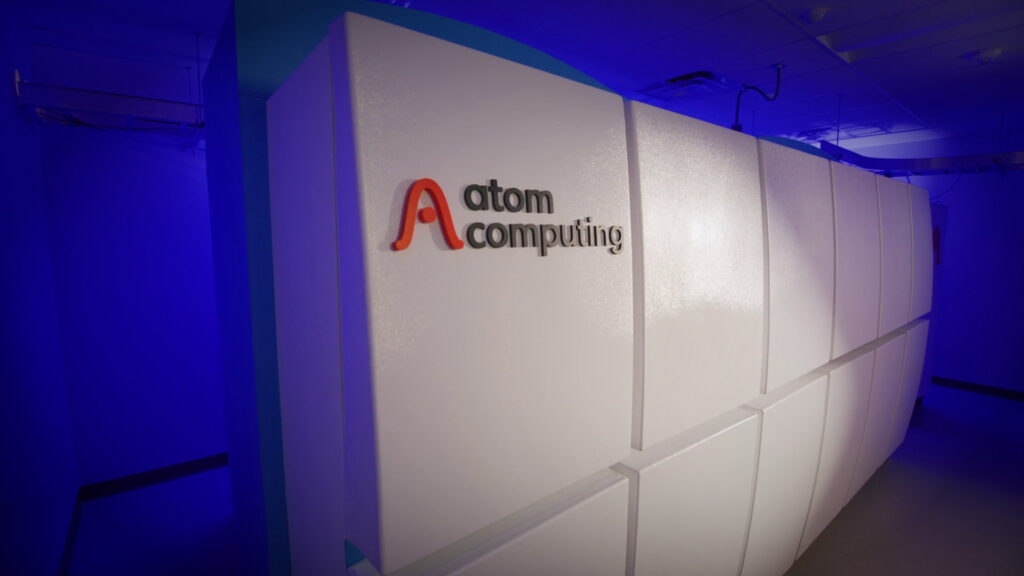Demonstrating high-fidelity gates and the world’s largest entangled logical qubit state in Atom Computing’s flagship systems
In September Microsoft announced their collaboration with Atom Computing to build the world’s most powerful quantum machine, and create a unique commercial offering which is available for order today.
Just two months after this announcement we are excited to share the news that together we have now entangled 24 logical qubits, setting a new world record. We also jointly demonstrated error detection, correction, and computation with 28 logical qubits on Atom’s flagship systems. More information on this work can be found in the Azure Quantum technical blog.

At the same time, Atom Computing is announcing the demonstration of the highest two-qubit gate fidelity in a commercial neutral atom system. This is another important milestone in the company’s race to build fault-tolerant quantum computers, achieving state-of-the-art single-qubit and two-qubit gate fidelities in Atom’s second-generation systems.
In a preprint article on arXiv, the Atom team reported the measured performance of qubits contained in an optical tweezer array, with a 99.963(2)% single-qubit gate fidelity, and a 99.56(5)% two-qubit gate fidelity, demonstrating the best neutral-atom two-qubit gate fidelity in a commercial system (update: the article has since been published in Physical Review X Quantum).
Dr. Ben Bloom, Founder and Chief Executive Officer, said “We are excited to show how our highly scalable neutral atom technology can be used to create large numbers of high-fidelity qubits that are a crucial part of Atom’s strategy to building fault tolerant quantum computers.”
Fault tolerant quantum computing is essential for being able to solve large computational problems that enable scientific and economic value beyond classical computing, and it requires the integration of multiple advanced technologies and quantum error correction algorithms to provide sufficient reliable computing resources in a sustainable way.
With these results, Atom Computing’s second-generation systems have now demonstrated all of the key ingredients necessary for supporting quantum error correction, including large numbers of high-fidelity physical qubits which have all-to-all connectivity, long coherence times, and mid-circuit measurement with qubit reset and reuse.
Atom Computing will continue to energetically drive their technical roadmap and, together with Microsoft, demonstrate significant milestones towards achieving scientific and commercial advantage faster than previously thought possible.
For more information, see Atom Computing's technical paper, our joint technical paper, Microsoft's Azure Quantum technical blog, and sign up for the Quantum Insider Webinar - featuring both Microsoft and Atom Computing - on January 16, 2025 to learn more about our collaboration.